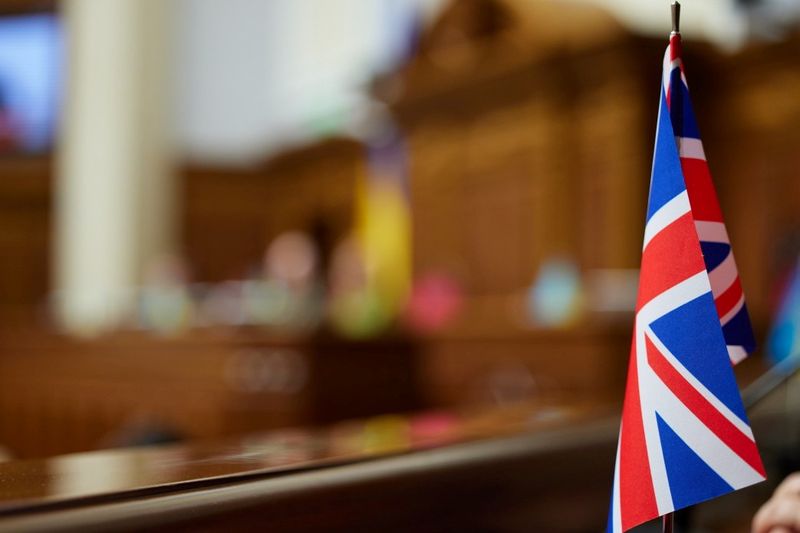Britain targets Russian officials in new wave of sanctions
2022.07.26 15:14

FILE PHOTO: The Union Jack flag is seen during a session of a parliament attended by Ukraine’s President Volodymyr Zelenskiy and by British Prime Minister Boris Johnson via videolink, as Russia’s attack on Ukraine continues, in Kyiv, Ukraine May 3, 2022.
LONDON (Reuters) -Britain said on Tuesday it had sanctioned Kremlin-imposed officials in the Luhansk and Donetsk provinces in eastern Ukraine as well as 29 regional governors across Russia in response to Moscow’s invasion of the former Soviet republic.
The 42 new designations added to Britain’s Russia sanctions also included Russia’s minister and deputy minister of justice, and two nephews of Russian billionaire Alisher Usmanov, who was himself sanctioned by Britain in March.
“We will continue to impose harsh sanctions on those who are trying to legitimise Putin’s illegal invasion until Ukraine prevails,” Foreign Secretary Liz Truss, who is the frontrunner to succeed Boris Johnson as prime minister, said in a statement.
Vitaly Khotsenko and Vladislav Kuznetsov, the Russian-imposed Prime Minister and First Deputy Chairman of the so-called Donetsk and Luhansk People’s Republics, are now subject to travel bans and asset freezes, Britain’s foreign office said.
“Khotsenko and Kuznetsov have been sent to implement Russia’s policies across the invaded region, supporting Putin’s plans to illegally annex more of Ukraine and use sham referendums to falsely legitimise their occupation,” it said.
The Russian regional governors were sanctioned for facilitating the Russian occupation and attempting to wrest territory from Ukraine by transferring funds to Donetsk and Luhansk, Britain added.
Johnson has sought to lead western sanctions against Russia since its Feb. 24 invasion of Ukraine, which Moscow calls a “special military operation.
Britain says it has so far sanctioned more than 1,100 individuals and more than 100 entities in Russia, including targeting high-profile businessmen and companies to prominent politicians.
The British government said it was also targeting two groups of Syrian individuals in coordination with the European Union, one of whom it said was responsible for recruiting Syrians to fight in Ukraine and the other supports the “repressive Syrian regime”.








